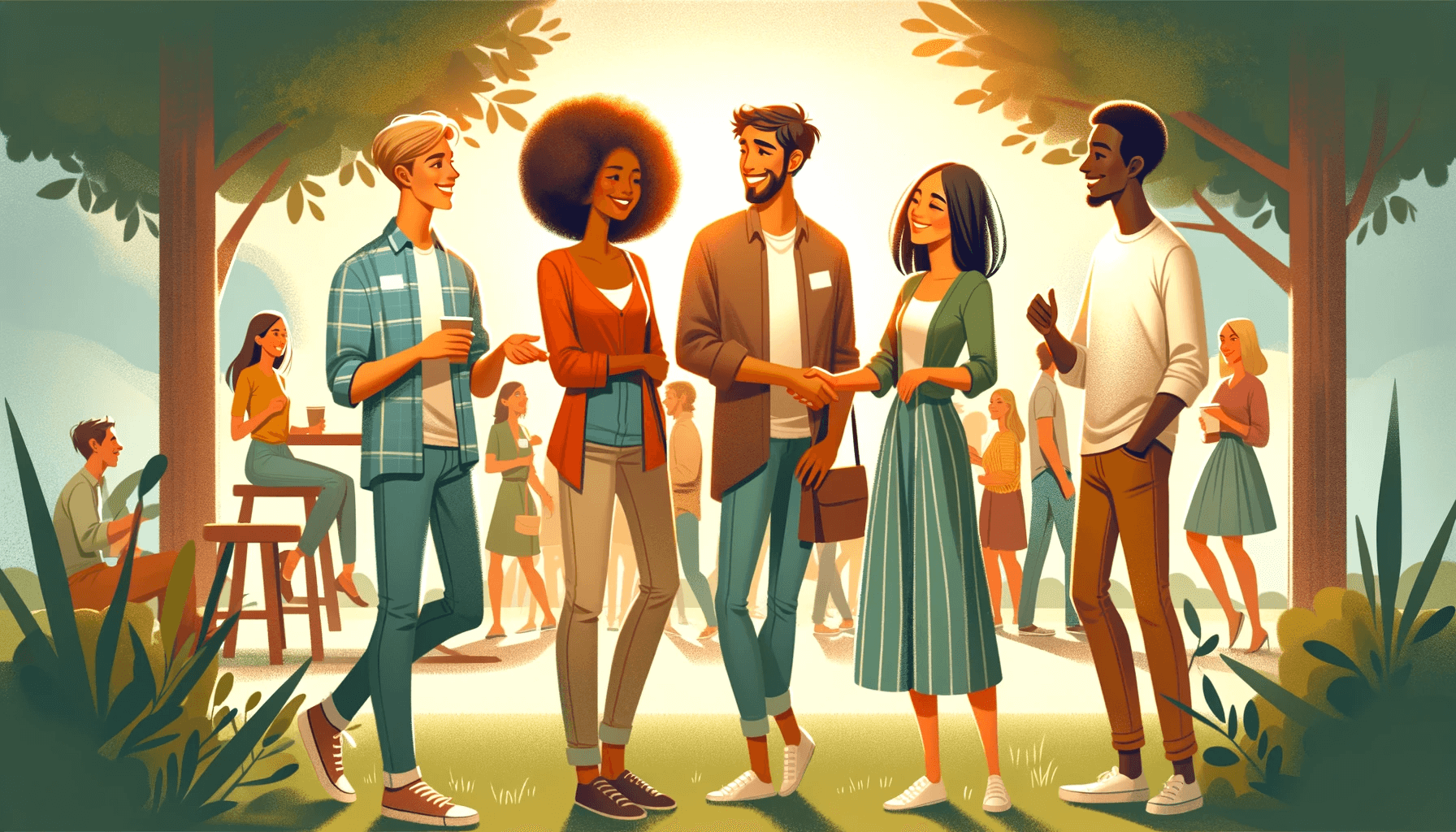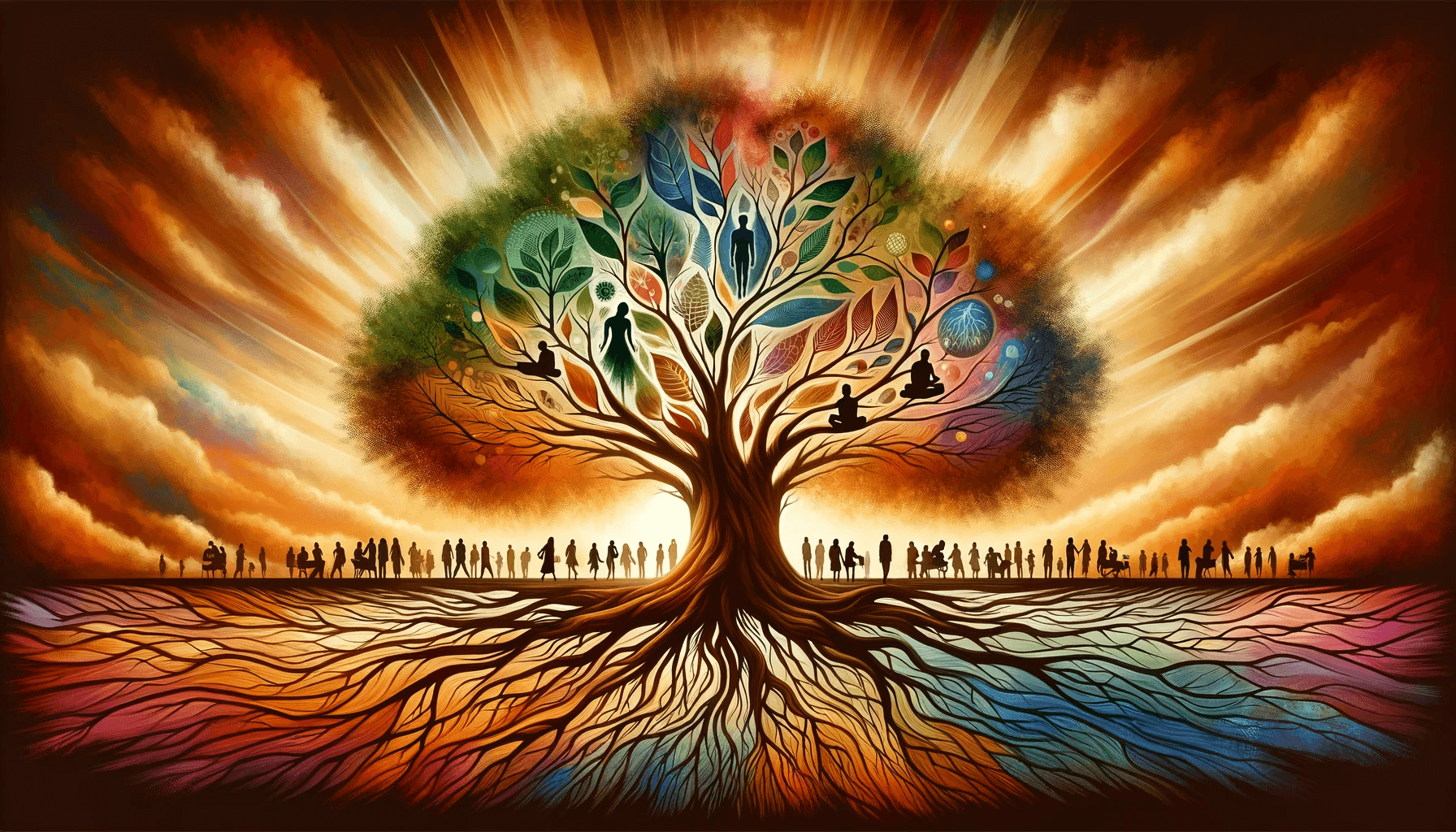Sponsor The Woman Men Adore
Table of Contents
Introduction
Making new friends is an essential aspect of our social lives. Whether we have recently moved to a new city, started a new job, or want to expand our social circle, building meaningful connections can bring immense joy and fulfillment. This guide will explore the importance of building meaningful connections, understand the barriers that can hinder the process, and provide practical tips on overcoming them. We can create lasting relationships that enrich our lives by embracing the art of making new friends.
The Importance of Building Meaningful Connections
Human beings are inherently social creatures, and having solid relationships and connections with others is crucial for our overall well-being. Meaningful connections provide us with emotional support, a sense of belonging, and opportunities for personal growth. Research has shown that people with strong social connections are happier, healthier, and more resilient in facing challenges. Investing time and effort into building meaningful connections can enhance our quality of life and create a support network that enriches our experiences.
Understanding the Barriers to Making New Friends
Before delving into the process of making new friends, it is important to recognize and understand the barriers that can hinder our efforts. Shyness and social anxiety are common challenges that many people face when attempting to connect with others. These feelings of self-consciousness and fear of judgment can prevent us from initiating conversations or putting ourselves out there. Addressing these barriers by gradually exposing ourselves to social situations, seeking support from trusted friends or professionals, and practicing self-compassion is essential.
Overcoming Shyness and Social Anxiety
If shyness and social anxiety are standing in the way of making new friends, there are several strategies we can employ to overcome these hurdles. One effective approach is to start small and gradually increase our social interactions. We can begin by attending small gatherings or joining social clubs where we feel more comfortable. Additionally, practicing mindfulness and deep breathing exercises can help alleviate anxiety in social situations. It is important to remember that everyone feels a degree of shyness or nervousness when meeting new people and that vulnerability is a natural part of the human experience.
Finding Common Interests and Shared Values
One of the most effective ways to build connections is by finding common interests and shared values. Engaging in activities or joining groups that align with our passions and values allows us to meet like-minded individuals who share our enthusiasm. Whether it is joining a book club, participating in a sports team, or volunteering for a cause we care about, these shared experiences provide a solid foundation for building friendships. By engaging in activities we enjoy, we increase the likelihood of meeting potential friends and create opportunities for meaningful conversations and connections.
Making the First Move: Approaching Potential Friends
Approaching potential friends can be intimidating, but it’s essential in building new relationships. Here are some tips to help you make the first move:
- Start with a Smile: A warm, friendly smile can make you seem approachable and set a positive, conversational tone.
- Find Common Ground: Look for shared interests or common situations, such as being in the same class, workplace, or social event. This can provide a natural starting point for a conversation.
- Use Open-Ended Questions: Asking open-ended questions encourages others to share more about themselves. For example, “What do you think about this event?” or “What kind of movies do you like?”
- Be a Good Listener: Show genuine interest in what the other person is saying. Listening attentively can make the other person feel valued and open up more.
- Share About Yourself: While it’s important to listen, sharing information about yourself is crucial for building trust and rapport. However, keep it light and positive in the beginning.
- Body Language: Pay attention to your body language. Maintain eye contact, nod in understanding, and avoid crossing your arms or appearing closed off.
- Compliment Sincerely: A sincere compliment can break the ice if you genuinely admire something about the person, like their outfit or the way they handled a situation.
- Be Yourself: Authenticity is critical in forming meaningful connections. Don’t try to be someone you’re not just to impress others.
- Follow-up: If the initial interaction goes well, don’t hesitate to suggest another meet-up or exchange contact information.
Making friends is a process; not only some attempts will lead to a deep connection. Be patient and keep trying. Over time, your confidence and social skills will improve, making it easier to approach new people and form lasting friendships.
Nurturing Friendships: Communication and Active Listening
Building a solid foundation for a friendship is just the beginning; nurturing and maintaining that connection requires ongoing effort. Effective communication and active listening are key components of a healthy and fulfilling friendship. It is important to be present in conversations, giving our full attention to the person we are engaging with. Show empathy and understanding by validating their feelings and experiences. Additionally, expressing gratitude and appreciation for our friends strengthens the bond and reinforces the importance of the relationship. Regularly checking in and making time for shared activities helps foster a deeper connection and ensures the friendship continues growing.
The Power of Vulnerability and Authenticity in Building Connections
Vulnerability and authenticity play a pivotal role in building meaningful connections. Allowing ourselves to be vulnerable creates an environment where trust can flourish. Sharing our thoughts, feelings, and experiences on a deeper level allows others to see our true selves and encourages them to reciprocate. Authenticity is essential in building genuine connections, as people are naturally drawn to those who are true to themselves. We invite others to do the same by embracing vulnerability and authenticity, fostering deeper and more meaningful friendships.
Building a Support Network: Group Activities and Organizations
Engaging in group activities and joining organizations can provide opportunities to meet a diverse range of individuals and build a support network. We can connect with people who share similar interests and passions by participating in group activities such as team sports, hobby clubs, or community organizations. These shared experiences often lead to lasting friendships as we bond over common goals and shared challenges. Additionally, group activities and organizations offer a sense of belonging and support during joyful and challenging times.
Maintaining and Strengthening Friendships Over Time
Once we have established meaningful friendships, investing time and effort into maintaining and strengthening those connections is important. Regularly checking in with our friends, scheduling catch-up sessions, and making time for shared activities are all essential in nurturing the relationship. It is also important to adapt to the changing dynamics of friendships, allowing them to evolve naturally over time. Being supportive, compassionate, and understanding during difficult times strengthens the bond and solidifies the friendship.
Dealing with Friendship Challenges and Conflicts
Navigating friendship challenges and conflicts is an essential aspect of maintaining healthy relationships. Here are some strategies to effectively deal with these issues:
- Open Communication: The most crucial step in resolving conflict is communicating openly and honestly. Express your feelings and concerns in a clear, non-confrontational manner. It’s important to listen to the other person’s perspective as well.
- Empathy and Understanding: Try to see things from your friend’s point of view. Understanding where they are coming from can help find common ground and prevent misunderstandings.
- Apologize When Necessary: Don’t hesitate to apologize if you realize that you have made a mistake. A sincere apology can go a long way in mending a strained relationship.
- Set Boundaries: It’s important to set and respect personal boundaries. This helps ensure that both parties feel comfortable and respected in the friendship.
- Seek Compromise: Look for a middle ground where both parties can agree. Compromising doesn’t mean losing; you value the relationship more than winning an argument.
- Avoid Gossip and Backbiting: Talking about your friend behind their back can exacerbate the situation. It’s better to address issues directly with the person involved.
- Give Space When Needed: Sometimes, taking a short break from each other can help. It allows both parties to cool down and reflect on the situation.
- Seek Outside Help: If you find it difficult to resolve the conflict, consider seeking advice from a trusted individual or a professional, like a counselor.
- Focus on Positive Aspects: Remember why you became friends in the first place. Focusing on positive aspects can help in overcoming negative feelings.
- Acceptance: It’s important to recognize that not all conflicts can be resolved. Sometimes, accepting the differences and moving on is the best option.
Conflicts in friendships are normal and can be an opportunity for growth. Handling them with care and respect can strengthen the bond between friends.
The Role of Technology in Making New Friends
In today’s digital age, technology plays a significant role in our social lives. Social media platforms, online communities, and networking apps provide opportunities to connect with individuals from all walks of life. While technology can facilitate the initial stages of making new friends, it is important to remember that meaningful connections are built through genuine interactions and shared experiences. Utilize technology to find potential friends, but prioritize face-to-face interactions and genuine connections for long-lasting, meaningful relationships.
Conclusion: Embracing the Art of Making New Friends
Building meaningful connections is an art that requires time, effort, and vulnerability. By understanding the importance of meaningful connections, overcoming barriers such as shyness and social anxiety, finding common interests, and taking the first step in approaching potential friends, we can create lasting friendships that enrich our lives. Nurturing these friendships through effective communication, active listening, vulnerability, and authenticity ensures they grow and thrive over time. Remember to embrace the role of technology as a tool but prioritize genuine interactions for meaningful relationships. By embracing the art of making new friends, we open ourselves to a world of possibilities and enrich our lives with deep and fulfilling connections.
CTA: Start today by contacting someone you’ve meant to connect with and take the first step in building a meaningful friendship. Remember, meaningful connections require effort and vulnerability, but the rewards are immeasurable.




